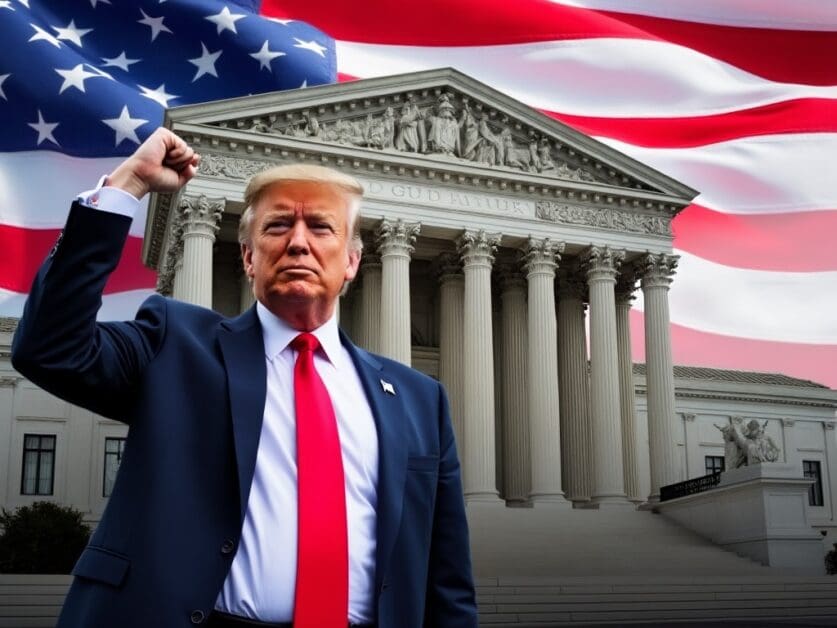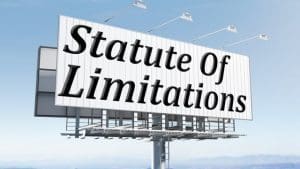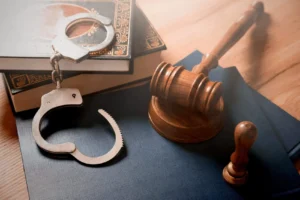Trump’s $489 Million Fraud Appeal: Key Arguments, Judicial Concerns, and Potential Outcomes
In a high-stakes legal battle that has captured national attention, former President Donald Trump is currently appealing a staggering $489 million civil fraud judgment in New York. This case, which has far-reaching implications for both Trump’s business empire and his political future, has become a focal point of legal scrutiny and public debate. As the appellate court weighs the merits of Trump’s appeal, legal experts and political observers are closely watching for potential outcomes that could reshape the landscape of business fraud litigation and political accountability.
The case stems from a lawsuit filed by New York Attorney General Letitia James, alleging that Trump, his adult sons, and the Trump Organization engaged in years of fraudulent business practices. Specifically, the suit claimed that Trump and his associates systematically inflated the value of assets to secure favorable loans and insurance terms, while deflating values to minimize tax liabilities. This practice, according to the Attorney General’s office, amounted to a pattern of financial fraud that unjustly enriched the Trump Organization and its principals.
In February 2024, Judge Arthur Engoron delivered a bombshell ruling that found Trump and his co-defendants liable for fraud. The judgment included a $354 million penalty, plus interest, bringing the total to nearly $489 million. Additionally, the ruling barred Trump from serving as an officer or director of any New York corporation for three years, a decision with potentially significant ramifications for his business operations in the state.
Trump’s legal team swiftly moved to appeal the decision, arguing that the judgment was excessive, politically motivated, and based on flawed legal reasoning. As the appellate process unfolds, several key arguments and concerns have emerged that could influence the ultimate outcome of this high-profile case.
One of the primary contentions raised by Trump’s attorneys is that the penalty imposed by Judge Engoron is disproportionate to any actual harm caused. They argue that the financial institutions involved in the transactions at the heart of the case suffered no losses and, in fact, profited from their dealings with the Trump Organization. This argument challenges the basis for the massive financial penalty and questions whether the judgment serves a legitimate remedial purpose or veers into punitive territory without proper justification.
The appeal also takes issue with the scope of the Attorney General’s authority in bringing the case. Trump’s lawyers contend that the lawsuit represents an overreach of the AG’s office, arguing that it improperly intervenes in private business transactions where no clear public harm has been demonstrated. This line of reasoning seeks to frame the case as a politically motivated attack rather than a legitimate exercise of regulatory oversight.
Another significant aspect of the appeal centers on the statute of limitations. The defense team argues that many of the transactions cited in the case occurred outside the applicable time frame for legal action, and thus should have been excluded from consideration. If successful, this argument could substantially reduce the scope of the case and potentially the size of the judgment.
The appellate court’s handling of these arguments will be crucial in determining the fate of the $489 million judgment. During oral arguments, some judges on the panel expressed skepticism about certain aspects of the original ruling, particularly the size of the penalty and the connection between the alleged fraudulent practices and any tangible harm to victims.
One judge characterized the case as “troubling,” while another questioned the relationship between the substantial penalty and any actual damages, especially given that the parties involved in the transactions appeared satisfied with the outcomes. These comments from the bench have led some legal observers to speculate that the appellate court may be inclined to modify or potentially overturn aspects of Judge Engoron’s ruling.
The case has broader implications beyond Trump’s personal and business interests. It raises important questions about the limits of executive power in pursuing fraud cases, the appropriate remedies for white-collar financial crimes, and the role of the judiciary in adjudicating complex business disputes with political overtones.
For the legal community, the case represents a significant test of New York’s anti-fraud statutes and their application to high-profile business figures. The outcome could set precedents for how similar cases are pursued and adjudicated in the future, potentially influencing the strategies employed by both prosecutors and defense attorneys in complex financial fraud litigation.
The appeal also intersects with ongoing debates about corporate accountability and the enforcement of financial regulations. Advocates for stricter oversight of business practices argue that the original judgment sends a powerful message about the consequences of fraudulent behavior, even for wealthy and politically connected individuals. Conversely, critics contend that the case exemplifies government overreach and the potential for legal processes to be weaponized for political purposes.
As the appellate court deliberates, the potential outcomes range from a full affirmation of the original judgment to a significant reduction in penalties or even a complete reversal. Each scenario carries distinct implications not only for Trump and his business interests but also for the broader landscape of financial fraud enforcement and corporate governance.
A full affirmation of the judgment would be a resounding victory for the New York Attorney General’s office and would likely embolden similar investigations and prosecutions across the country. It would reinforce the message that even the most powerful figures are not above the law and can face severe consequences for fraudulent business practices.
On the other hand, a substantial reduction in the penalty or a partial reversal of the judgment could be seen as a rebuke to what some view as overzealous prosecution. Such an outcome might lead to more cautious approaches by state attorneys general in pursuing complex fraud cases, particularly those involving high-profile defendants with significant resources to mount legal challenges.
A complete reversal, while considered less likely by many legal experts, would be a major setback for the Attorney General’s office and could have a chilling effect on similar fraud investigations. It would also provide Trump with a significant legal and political victory, potentially bolstering his claims of persecution by his political opponents.
Regardless of the ultimate outcome, the case has already had a profound impact on Trump’s business empire and public image. The legal proceedings have forced a level of transparency about Trump’s financial dealings that was previously unprecedented, challenging long-standing claims about his wealth and business acumen.
The case has also highlighted the complex interplay between Trump’s business interests and his political career. As he continues to pursue a return to the presidency, the ongoing legal battles and potential financial liabilities pose significant challenges to his campaign narrative and operational capabilities.
For the Trump Organization, the stakes of the appeal are particularly high. The original judgment not only imposed a massive financial penalty but also placed severe restrictions on the company’s ability to operate in New York. A confirmation of these sanctions could force significant restructuring of the organization and potentially impact its ability to secure financing and maintain its current portfolio of properties.
The case has also sparked renewed debate about the role of corporate governance and the responsibilities of business leaders. Critics argue that the alleged practices at the Trump Organization reflect broader issues of accountability and transparency in the corporate world, particularly among privately held companies. Advocates for reform contend that the case underscores the need for stronger regulatory frameworks and more rigorous enforcement of existing laws.
As the legal proceedings continue, the case remains a lightning rod for political controversy. Trump and his supporters have consistently framed the lawsuit and subsequent judgment as part of a coordinated effort by his political opponents to undermine his business and political aspirations. This narrative has resonated with a significant portion of his base, who view the legal challenges as evidence of a “witch hunt” against the former president.
On the other hand, Trump’s critics argue that the case represents a long-overdue reckoning for decades of questionable business practices. They contend that the legal system is functioning as intended, holding powerful individuals accountable for their actions regardless of their political status or financial resources.
The appeal process has also shed light on the complexities of valuing real estate and other assets in the context of financial statements and loan applications. Expert witnesses on both sides have offered conflicting interpretations of industry standards and acceptable practices, highlighting the often subjective nature of asset valuation, particularly for unique or prestigious properties.
This aspect of the case has broader implications for the real estate industry and financial institutions. It raises questions about the due diligence processes employed by banks and insurers when dealing with high-net-worth individuals and complex business structures. Some industry observers speculate that the case could lead to more stringent verification procedures and potentially higher compliance costs for both lenders and borrowers.
The legal battle has also drawn attention to the role of professional advisors, including accountants and lawyers, in preparing and verifying financial statements. The original ruling criticized the Trump Organization’s reliance on these professionals as a defense against fraud allegations, potentially setting a precedent for how courts view the distribution of responsibility between businesses and their advisors in cases of financial misrepresentation.
As the appellate court considers the case, legal experts are closely examining the potential constitutional issues at play. Some argue that the size of the penalty and the restrictions imposed on Trump’s business activities raise questions of proportionality and due process. These constitutional considerations could play a significant role in the court’s deliberations and potentially set the stage for further appeals to higher courts.
The case has also reignited discussions about the effectiveness of civil penalties in deterring corporate fraud. While the $489 million judgment is undoubtedly substantial, some critics argue that monetary penalties alone may be insufficient to change behavior in cases involving extremely wealthy individuals or large corporations. This has led to calls for more creative and impactful remedies, such as mandatory corporate governance reforms or industry-wide regulatory changes.
The ongoing legal saga has had ripple effects beyond the immediate parties involved. It has influenced public perception of the legal system’s ability to hold powerful figures accountable and has become a touchstone in broader debates about economic inequality and the concentration of wealth and power in society.
For the legal profession, the case presents a fascinating study in litigation strategy and the challenges of prosecuting complex financial crimes. It has showcased innovative legal arguments on both sides and highlighted the importance of thorough investigation and meticulous preparation in high-stakes civil litigation.
The appeal has also drawn attention to the role of judicial discretion in determining penalties for white-collar crimes. The significant variation between the original judgment and the potential outcomes of the appeal process underscores the power of individual judges in shaping the consequences of financial fraud cases.
As the legal proceedings continue, the case remains a subject of intense public interest and media scrutiny. It has sparked countless hours of commentary and analysis, with legal experts, political pundits, and financial analysts all weighing in on the potential ramifications of various outcomes.
The case has also become a focal point for discussions about the intersection of business, politics, and the law in contemporary America. It raises profound questions about the accountability of political leaders for their private business dealings and the extent to which financial improprieties should impact an individual’s fitness for public office.
For Trump personally, the outcome of the appeal could have far-reaching consequences beyond the immediate financial implications. A confirmation of the original judgment could severely constrain his business operations and potentially impact his ability to fund future political campaigns. Conversely, a favorable ruling could provide a significant boost to his political narrative and financial position.
The case has also highlighted the challenges of prosecuting financial crimes in an era of complex corporate structures and international business dealings. It has underscored the need for sophisticated investigative techniques and cross-jurisdictional cooperation in pursuing cases of this nature.
As the appellate court deliberates, the legal community is watching closely for any indications of how the judges might rule. The questions posed during oral arguments and the areas of focus in the court’s inquiries could provide valuable insights into the potential direction of the final decision.
Regardless of the outcome, the case is likely to have lasting implications for how financial fraud cases are prosecuted and defended in the future. It may influence everything from the strategies employed by state attorneys general to the compliance practices adopted by businesses to protect against similar allegations.
The appeal process itself has become a subject of study for legal scholars, offering a real-time case study in appellate procedure and the challenges of reviewing complex financial litigation. It has highlighted the importance of preserving key legal arguments throughout the trial process and the strategic considerations involved in framing issues for appellate review.
As the case continues to unfold, it remains a powerful reminder of the complexities of modern financial systems and the ongoing challenges of ensuring accountability and transparency in business practices. Whether the appellate court upholds, modifies, or overturns the original judgment, the Trump fraud appeal will likely be remembered as a landmark case in the annals of American jurisprudence, with far-reaching implications for business, politics, and the law for years to come.
Citations:
[1] https://ppl-ai-file-upload.s3.amazonaws.com/web/direct-files/28348305/29329b8f-032c-46c1-8a27-f59fa46aeb7c/categories2.docx
[2] https://www.cbsnews.com/news/donald-trump-appeals-civil-fraud-judgment-new-york/
[3] https://www.nytimes.com/2024/09/26/nyregion/trump-civil-fraud-penalty-appeals-court.html
[4] https://www.newsweek.com/trumps-lawyer-urges-ny-appeals-court-toss-489m-civil-fraud-ruling-1960028
[5] https://www.cnn.com/2024/09/26/politics/trump-454-million-civil-fraud-new-york-appeal/index.html
[6] https://www.law.cornell.edu/wex/fraud
[7] https://www.robertdmitchell.com/common-law-fraud
[8] https://www.gibsondunn.com/securities-litigation-2024-mid-year-update/
[9] https://www.newsweek.com/donald-trump-letitia-james-arthur-engoron-new-york-fraud-case-1960333




















